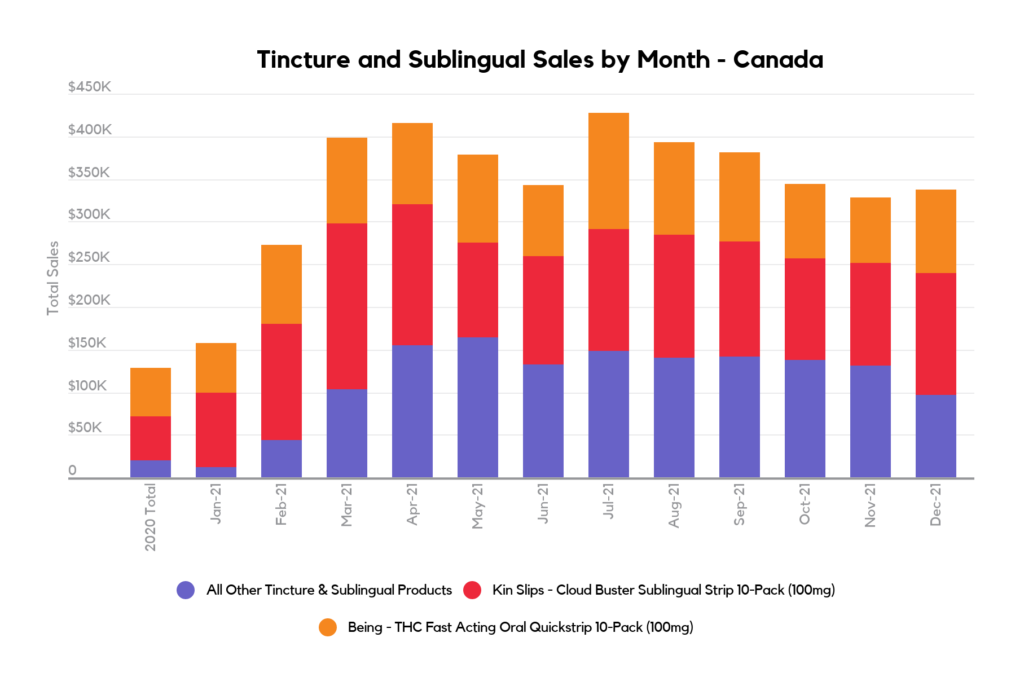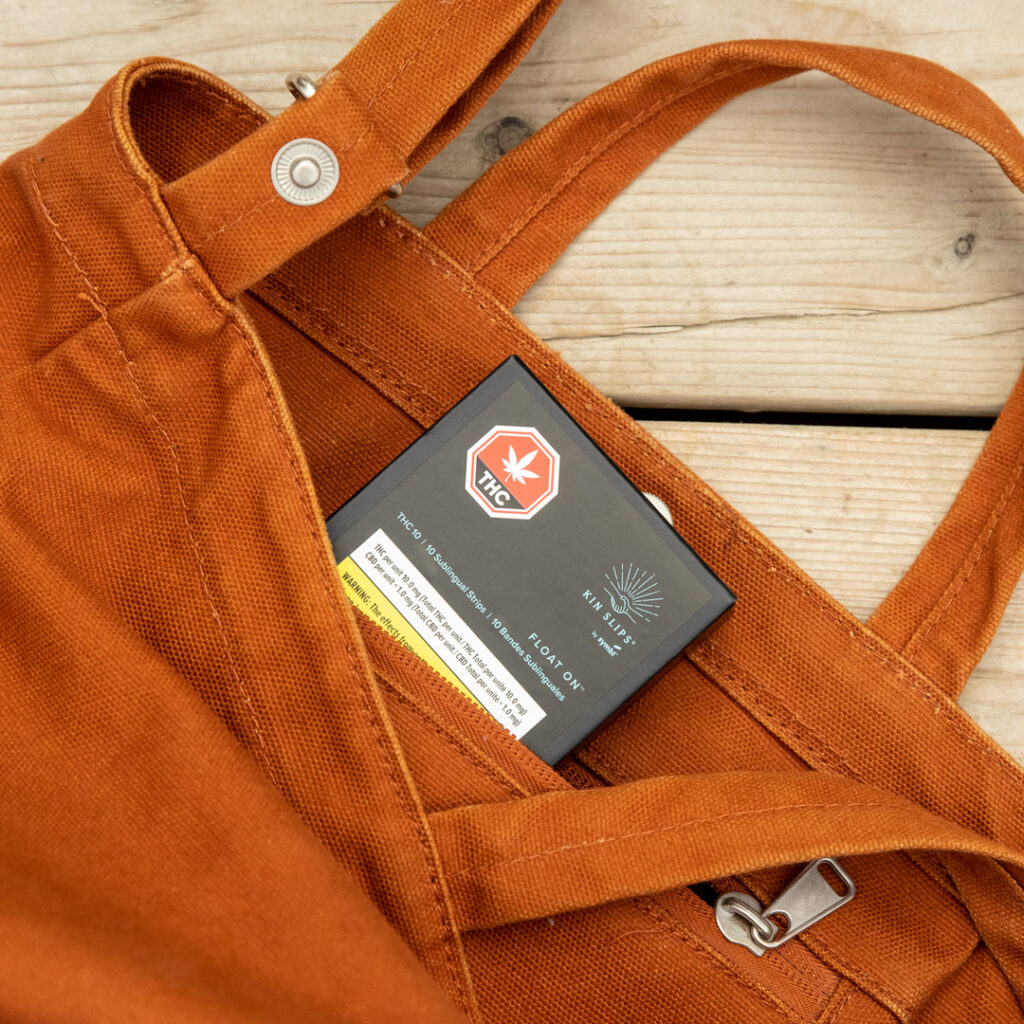
Sublinguals are taking Canadian cannabis by storm
If you’re dosing cannabis with one of the new sublingual strips hitting the Canadian market, you’re part of a burgeoning trend that analysts believe is on the cusp of becoming a major consumer product format.
Along with tinctures (aka oil drops), sublingual products saw a massive 3000% sales growth in Canada between 2020 and 2021 (with the necessary caveat that these products didn’t hit the market until 2020). Although they still only make up a small portion of cannabis sales, the rapid growth points to a new consumer trend.
According to data compiled by Headset, “It appears that sublingual strips are driving a significant portion of the growth in the tincture and sublingual products category in Canada, with very few distinct products providing the majority of sales.”

The report notes that sales of sublingual products peaked at around US$425,000 nationwide in July 2021 and then fell to just under US$350,000 in December.
Sublingual products are similar to breath mint strips that you would place under your tongue. Packed with either 5mg or 10mg of THC, these strips offer a quicker high onset of around 15 minutes compared to around 90 minutes for edibles and beverages.
As Leafly previously wrote, sublingual absorption is so effective because it bypasses the gastrointestinal tract, where stomach acids and enzymes often convert delta-9-THC to the more psychoactive form of 11-hydroxy-THC.
Sublingual strips avoid this route by directly interacting with the bloodstream through this membrane under the tongue. It gives the consumer a purer Delta 9 experience that feels similar to smoking or vaping
Cannabis users want to try everything at least once
As part of the 2.0 class of cannabis products being launched in Canada, they represent a more discreet format for Canadian cannabis users compared to flower and vaporizers.
“I’m not surprised that so many people went out to buy these types of strips,” says Rachel Colic, chief strategist at Y Creative, a consulting firm focused on brand strategy for the cannabis industry. “It’s a long-awaited format, it’s novel and new, and people always want to try everything.”
She notes that the format is consumer friendly since sublingual strips resemble the easily recognizable product of breath mint strips such as Listerine’s PocketPaks.
Related
Why are pre-rolls so popular with consumers?
What also stands out positively is how this market has grown significantly over the past 18 months with only two major players in the market: Beings THC Oral Strips, manufactured by Thrive Cannabis based in Simcoe, Ontario, and Kin Slips by Aleafia Health in Toronto .
According to Colic, the limited market players have performed impressively in their category. “I find it remarkable that these two SKUs have supported all of this growth and filled the void left by the cannabis market.”
Best-selling format for medical cannabis patients
Speaking to Tricia Symmes, CEO of Aleafia Health, she says sublingual strips have become one of her top-selling medical device products. They have also released strips for the adult market, and one of their best sellers is their high CBD strips.
“It’s discreet, offers reliable dosing, and has become very popular with consumers who are new to this space,” Symmes says, noting how their licensed producer (LP) worked with California’s Kin State Group to bring the to sell strips in the Canadian market.

She adds that Aleafia and Kin are working to bring more sublingual products to Canada in the coming year, such as those with different flavors and CBD isolate.
But if sublingual cannabis products are potentially the next hot format, why are they only produced by two LPs in Canada?
The lack of market research in this area is a hindrance, says Dessy Pavlova, project manager at CannStandard, which tracks Canadian cannabis sales. “And Flower still has the appeal to a lot of consumers and LPs, and it’s still number one in terms of market share in Canada.”
David Silberberg
David Silverberg is a freelance journalist who writes for The Toronto Star, BBC News, The Washington Post, Business Insider, Cannabis Health, Merry Jane, High Times and many other outlets. He is also a writing coach, helping freelance journalists and creatives to advance their careers.
Check out David Silverberg’s articles
By submitting this form, you are subscribing to Leafly news and promotional emails and agreeing to Leafly’s Terms of Service and Privacy Policy. You can unsubscribe from Leafly email communications at any time.

Post a comment: